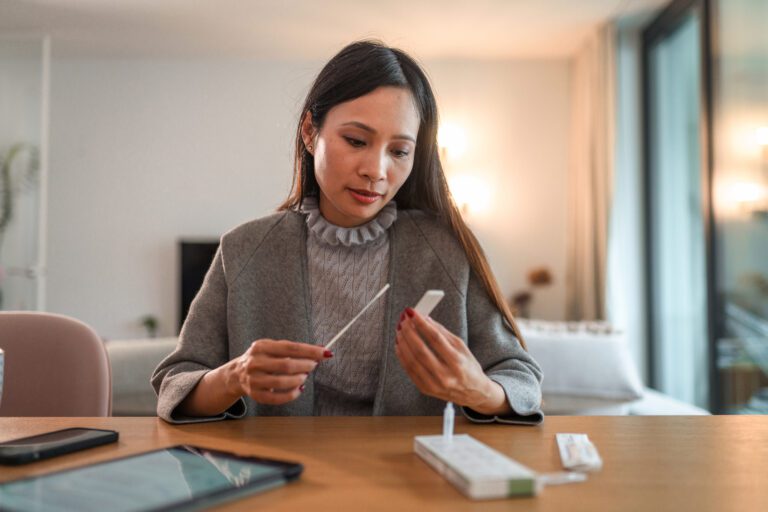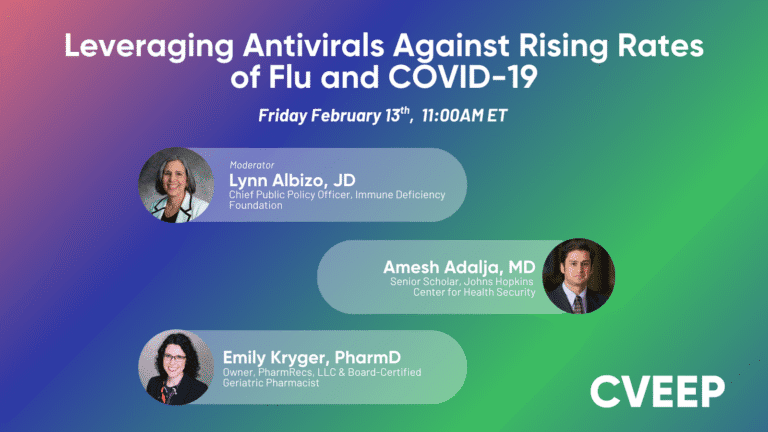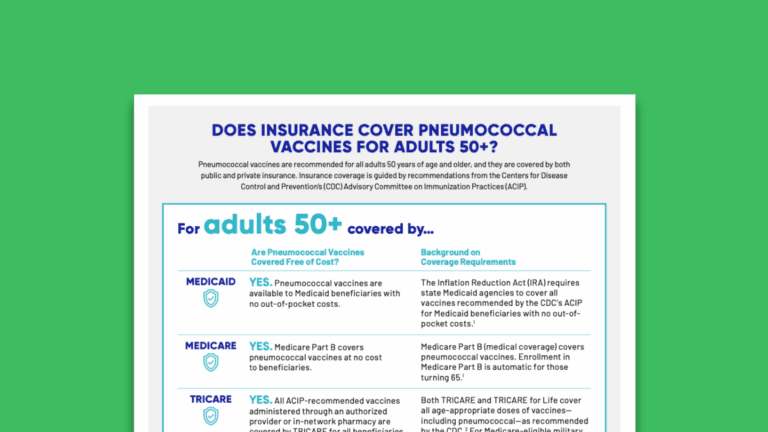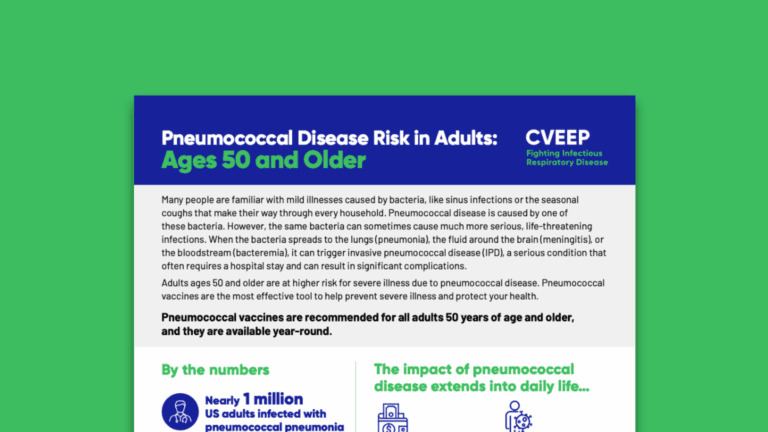Testing & Treatment
Learn more about options for testing and treatment.
Getting vaccinated is the best way to protect yourself against severe illness from infectious respiratory diseases such as COVID-19, influenza (flu), pertussis (whooping cough), respiratory syncytial virus (RSV), and pneumococcal disease.
However, for those who do get infected and are at high risk for severe illness, antiviral treatments are also available for some diseases, including COVID-19 and flu. Antiviral treatments can help prevent disease-related complications and should be started soon after symptoms appear. Talk with a healthcare provider to understand your options.
Behind the Science
While treatments are not a substitute, nor a replacement, for vaccines, the Food and Drug Administration (FDA) has approved them for people at high risk of hospitalization or death from COVID-19 or flu.

Safety & Effectiveness
Treatments for infectious respiratory diseases undergo rigorous research, multi-stage clinical trials, robust regulatory review and approvals, and ongoing safety monitoring once a treatment is approved for use.
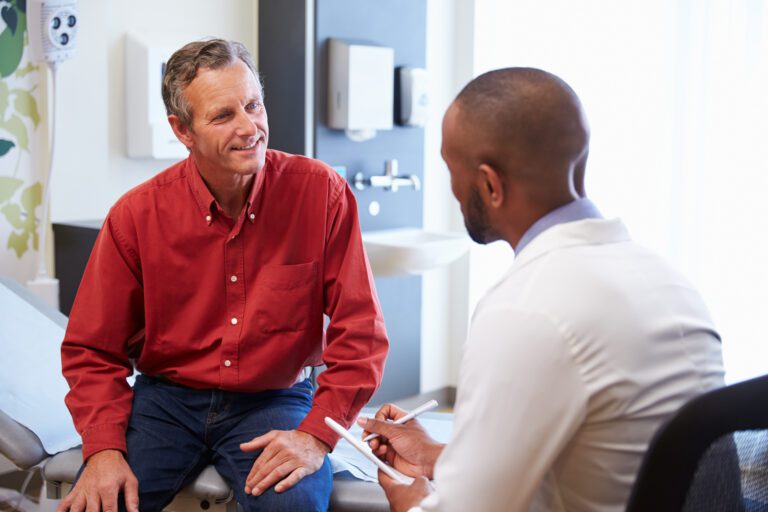
Cost & Coverage
Antiviral treatments are available at no or low-cost to most people.

Testing & Detection
The first symptoms of respiratory viruses like COVID-19, flu, and RSV, and even the common cold, can be very similar. With symptoms like fever, cough, sore throat, congestion, fatigue, headache, muscle and body aches, it can be challenging to know which illness you may be dealing with, but knowing what you have can make all the difference in your treatment and recovery.
